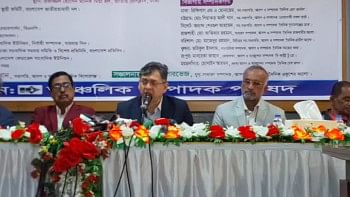Flagging drives letting Aedes bite

Amid a dearth of local government representatives, anti-mosquito campaigns have become irregular which according to experts may lead to a deadly dengue outbreak very soon.
The number of confirmed dengue cases is already high.
After the fall of the Awami League government in early August, 12 city corporation mayors, 330 municipality mayors and administrators, almost all the zilla and upazila parishad chairmen were removed.
The interim government then appointed administrators to carry out the responsibilities of the mayors.
But as most of the councillors of Dhaka's two city corporations went into hiding after the fall of the government, there is no one to watch over the mosquito killing drives, which include regular fogging and spraying of larvicides.
Many local government representatives, most of whom were Awami League leaders, in the capital and elsewhere have gone into hiding.
Eighty percent councillors are still absent in Dhaka North City Corporation and 75 percent in Dhaka South City Corporation, according to the officials.
Meanwhile, the disease borne by Aedes mosquitoes claimed 92 lives this year, and the confirmed cases was 14,804 as of yesterday. Twenty-eight of the deaths and 8,505 of the cases were detected outside Dhaka.
Entomologist Kabirul Bashar of Jahangirnagar University said the numbers may rise significantly later this month because rains are creating puddles of clear water for Aedes to breed while the authorities are almost inactive.
"We must identify the dengue hotspots and start working now to prevent more cases. The situation is bad across the country," he told The Daily Star. "Public leadership is very important in anti-mosquito campaigns. But there is no mayor."
Entomologist GM Saifur Rahman said surveillance, which is key to control Aedes mosquitoes, was absent even in the major cities.
"Through surveillance, we detect active clusters and breeding places of the Aedes, and then destroy them," he said.
The number of infections is likely to keep rising until the second half of October.
HIGH CASE FATALITY RATE
In epidemiology, case fatality rate is the proportion of people who have been diagnosed with a certain disease and end up dying of it.
According to the health directorate, the rate this year is 0.61 percent, up from 0.5 percent in 2023.
At least 1705 people died of dengue last year.
HM Nazmul Ahsan, associate professor at Shaheed Suhrawardy Medical College Hospital, said since mid-August, more patients were coming with dengue.
He added that delayed hospitalisation increased the risks.
In Sri Lanka, the case fatality rate was .04 percent in July, thanks to the country's systematic methods and modern health management.
Immediately after detecting a dengue patient, health workers in Sri Lanka update their national data. Actions are taken based on the data.
"Public health teams go to the patient's house, check the surroundings for Aedes breeding grounds, and destroy if they find any. They also look for other infected people," he said.
The teams also create awareness about how stagnant clear water can be a perfect breeding place for dengue larvae. The teams make a followup visit after a week and take legal action against residents if they find Aedes breeding places again, Nazmul said.
The chief of head of Sri Lanka's dengue management committee is the president and the army chief, ministers and top law enforcement members are also involved, he added.
Bangladesh's anti-mosquito programmes are not coordinated like theirs, he said.
Prof Tahmina Shirin, director of Institute of Epidemiology Disease Control And Research, urged people to consult a doctor if they have a temperature.
Administrator of Dhaka South City Corporation Sher Ali on Wednesday told reporters that larvae-killing drives were conducted regularly.
DSCC teams visit the patients' houses as part of the anti-mosquito programme, he said.
DNCC officials said 10 teams were formed on September 2 to raise awareness and monitor the anti-mosquito drives.


 For all latest news, follow The Daily Star's Google News channel.
For all latest news, follow The Daily Star's Google News channel. 






Comments